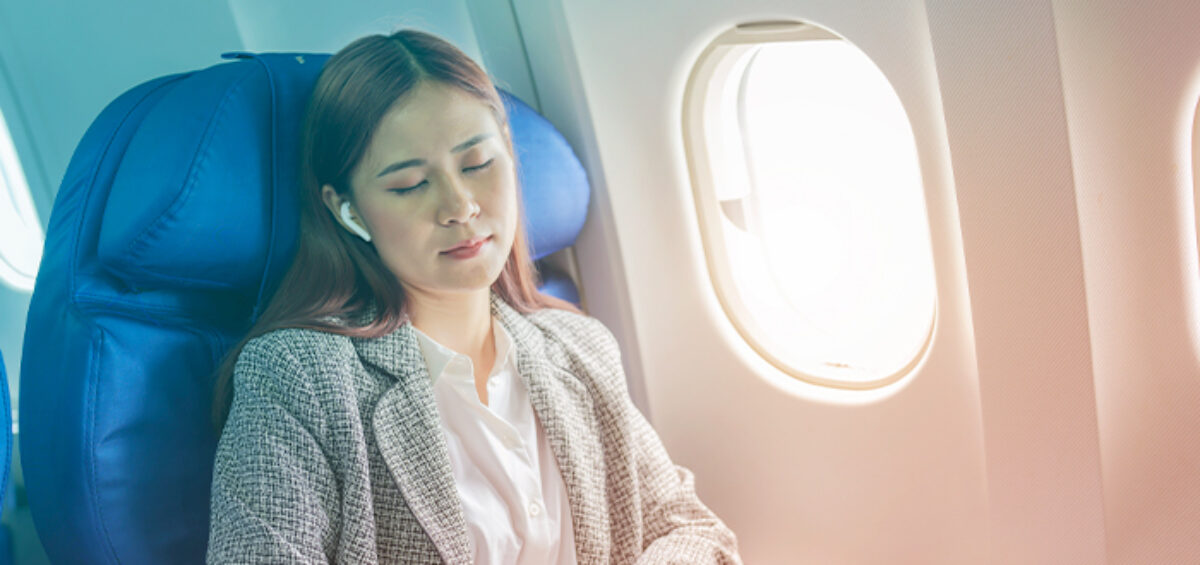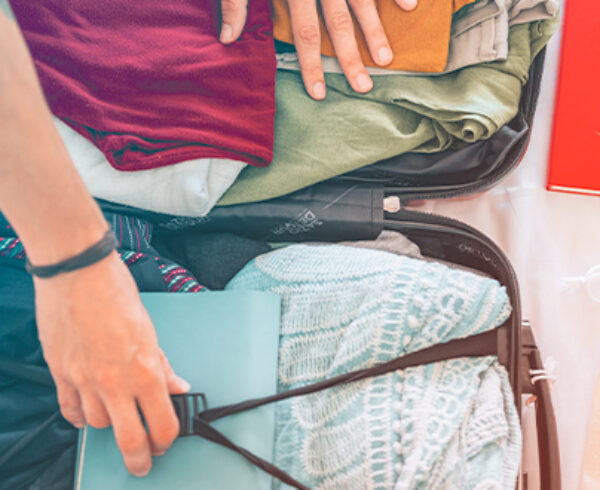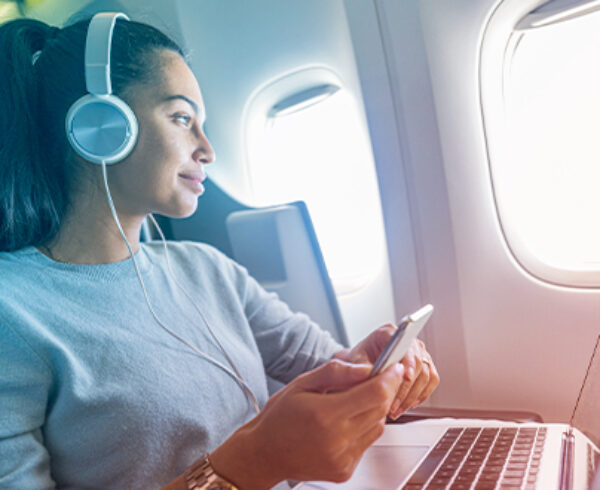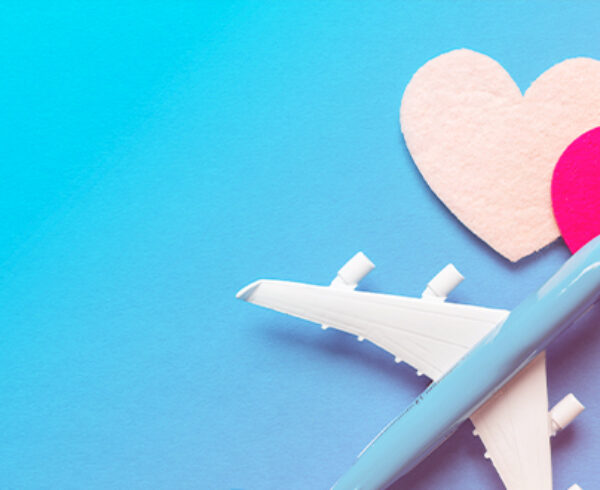Some Travelers can step onto a plane, find their seat and immediately drift off to sleep… And then there are the rest of us. If you struggle to sleep on the plane, you’re not alone.
Falling asleep on the plane is difficult. You’re in an unfamiliar (no matter how much you fly) situation around unfamiliar people. No matter the lie-flat seat you might book, it’s still not going to be as comfy as your bed at home. Passengers and flight attendants are coming and going. Lights turn on and off. In-seat entertainment screens flicker just out of your line of sight. Then, if there’s turbulence on top of all that… Well, let’s just say you’ll be arriving at your destination a little worse for wear.
All that said, as difficult as it can be to sleep on the plane, there are a few things you might want to consider doing for your best chances at a little shut-eye. Here’s what the experts say.

1. Stop stressing.
Yes, that’s easier said than done. However, we’re not saying you should toss aside all your stress regarding your upcoming meetings, catching your next flight or missing a family event occurring back home. Instead, you need to stop stressing specifically about sleeping!
According to a sleep scientist writing for The Conversation, while you can take precautions like avoiding caffeine or buying a fancy neck pillow, your best bet is to simply lower your expectations. Don’t worry about how much sleep you’ll get. Stop trying to force yourself to sleep. All that pressure essentially makes your body tense up and refuse to relax in any meaningful way. So, sit back, enjoy the ride, and let what happens happen.
2. Stay hydrated.
While an article from the experts at The Sleep Foundation suggests trying numerous methods that you’ve likely already given a go if you struggle to sleep on the plane, it does point out one thing you may not have considered: airplane air.
You know that dry airplane air can affect your skin. However, have you considered how it may impact your sleep, too? Dehydration can negatively impact sleep quality, so go ahead and drink up. Just be careful you don’t drink so much that you need to get up and go to the lavatory a few more times than normal during your flight.

3. Prep in advance — well in advance.
According to one sleep expert who spoke to Conde Nast Traveler, if you’re not so much worried about minutes slept on the plane but really just want to feel as good as possible after you’ve landed, you can prep in advance to allow your body to withstand that plane fatigue as best as possible.
Basically, you need to ensure that you’re not getting onto the flight with an existing sleep debt. A sleep debt will make you feel all the worse if you don’t sleep on the plane. Not familiar with the term? Your sleep debt is just what it sounds like. It’s the difference between how much sleep you’re getting and how much you truly need.
With that in mind, if you know you have a trip coming up, do your best to implement healthy sleep habits at home in advance. If your body is more thoroughly rested ahead of your flight, you may just find that missing a few hours on the plane isn’t that bad at all.
4. Really do give the standard advice a try.
While you may be skeptical and think that just wearing an eye mask or slipping into some comfy socks can’t help you, really do give the standard sleep advice a try during your next flight. The experts say that these methods do work for many people for science-backed reasons.
An article from UCLA Health points to the importance of wearing comfortable clothing. For example, it pointed to one study that showed that just the simple act of wearing thick, warm socks can help you fall asleep faster and then stay asleep longer.
A medically reviewed VeryWell Health article mentioned the importance of choosing the right seat for a better night’s sleep on the plane. For example, in some instances, you might find that it’s worth it to pay extra for a business or first-class seat. It may mean arriving at your destination feeling refreshed and ready to take on the day. However, even if you’re in economy class, seat selection matters. Anxious flyers may not prefer the window seat. In contrast, those who need something to rest their heads against may prefer the window seat. Whatever your preference, take the time to select your seat on the flight ahead of time.
All the experts point to the importance of creating a sleep environment that’s as good as it can possibly get on a plane and practicing good sleep hygiene. The same things that impact your sleep at home will impact your sleep on the plane. This includes body temperature, light, noise, stress and what you’ve eaten and drank in the last few hours. So, in the days and hours leading up to your flight, really think about the choices that you make and how you’ll set yourself up for sleeping success once you’re in the air.
What about sleep aids?
Experts are split regarding sleep aids. While some find them helpful, others find the potential side effects not worth the potential sleep. Additionally, sleep aids just don’t work for everyone. However, experts do largely note that if you want to take a sleep aid before a flight, talk to your doctor and, ideally, don’t take a sleep aid for the first time on a flight and don’t take a sleep aid on a flight if you’re flying alone.
Need more business travel tips, advice and info?
Check out the JTB Business Travel resource center and blog for more on getting the most out of your next business trip, making your business trips more convenient and what to expect from the business travel industry in 2024.














Leave a Comment